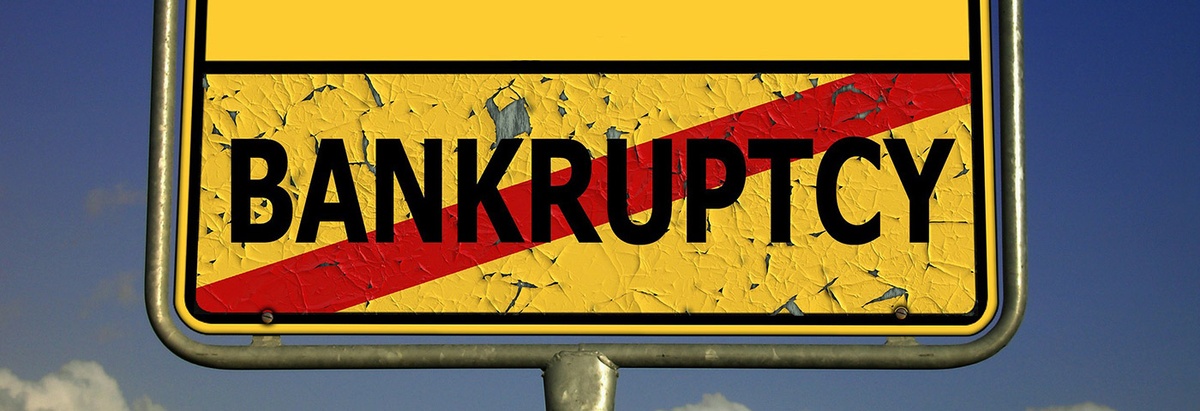The Legal and Financial Implications of Small Business Bankruptcy
It is of utmost importance for entrepreneurs and stakeholders to have a complete understanding of the legal and financial consequences when a small business encounters bankruptcy. This entails acquiring a comprehensive knowledge of the intricate aspects of bankruptcy laws, including chapter 7 and chapter 11 bankruptcy. Such expertise is vital in successfully maneuvering through the intricate process.

Liquidation bankruptcy, also known as Chapter 7 bankruptcy, requires a company to sell its assets in order to pay off its debts. This process can have significant consequences for small businesses, potentially leading to the termination of their operations and even the need to lay off employees.
Conversely, chapter 11 bankruptcy presents a chance for debt restructuring, specifically for small businesses grappling with financial challenges. To restore stability, businesses can strive to regain their financial footing by restructuring their debts and devising a repayment strategy. However, it is of utmost importance to approach this undertaking with careful deliberation and seek the advice of professionals to ensure its successful implementation.
Small business owners should have a comprehensive understanding of the legal consequences linked with bankruptcy filings. Seeking assistance from legal experts who specialize in bankruptcy law can offer valuable guidance during this difficult phase.
In addition, it is essential for small business owners to comprehend the financial implications. They should conduct a thorough evaluation of their current financial situation, carefully weigh the potential risks and benefits associated with various bankruptcy options, and ultimately make well-informed decisions that align with their long-term objectives.

The Effects on Employees and Stakeholders in a Bankrupt Small Business
The insolvency of a small enterprise can have wide-ranging consequences for different parties involved, such as employees, suppliers, and customers. Among these, one of the most immediate and substantial effects is the occurrence of employee layoffs. When a business faces bankruptcy, it frequently lacks the means to retain its entire workforce, leading to job cuts and creating financial insecurity for the employees.
In addition to losing their jobs, employees may also face challenges in receiving their unpaid wages. In many cases, bankrupt businesses struggle to meet their financial obligations, leaving employees with unpaid salaries and benefits.

Another critical aspect affected by the bankruptcy of a small business is the impact on pension plans. Employees who have been contributing to company-sponsored pension plans may find themselves at risk of losing their retirement savings or facing reduced benefits due to the financial strain faced by the bankrupt company.
Furthermore, supplier relationships can be severely disrupted when a small business goes bankrupt. Suppliers may find themselves with unpaid invoices or unfulfilled orders, leading to financial losses for these businesses as well.
Lastly, customers also experience the effects of a bankrupt small business. They may lose access to products or services they relied on from that particular company. This disruption could force them to seek alternative solutions or suppliers which might not be as convenient or cost-effective as before.
Navigating the Recovery Process: Options for Rebuilding After Bankruptcy
The journey of recovering from bankruptcy can be an intimidating process for both individuals and businesses. Fortunately, there are numerous alternatives to rebuild and regain financial stability. Within this section, we will delve into crucial strategies and approaches to consider when reconstructing after bankruptcy. These encompass business reorganization, debt repayment plans, credit rebuilding strategies, and the exploration of investor support.
Business reorganization is a crucial step in the recovery process. It involves assessing the current state of the business, identifying areas for improvement, and implementing changes to enhance operational efficiency and profitability. By restructuring operations, streamlining processes, and focusing on core strengths, businesses can position themselves for long-term success.
Debt repayment plans are another important aspect of post-bankruptcy recovery. These plans involve negotiating with creditors to establish manageable payment schedules or reduced settlement amounts. By diligently adhering to these plans, individuals and businesses can gradually eliminate their debts while demonstrating their commitment to financial responsibility.

In addition to debt repayment, credit rebuilding strategies play a vital role in restoring financial health. This may involve obtaining secured credit cards or loans that require collateral as a means of rebuilding creditworthiness over time. Consistently making timely payments on these accounts demonstrates reliability and helps improve credit scores.
Furthermore, seeking investor support can provide an injection of capital that accelerates the recovery process. Investors who believe in the potential of a restructured business may provide funding or expertise to help propel its growth trajectory.
Seeking Professional Guidance: The Role of Lawyers and Financial Advisors in Bankruptcy Cases
When dealing with bankruptcy cases, the assistance of lawyers and financial advisors is of paramount importance. These professionals play a vital role in offering expert guidance to both individuals and businesses as they navigate through the intricate complexities of the bankruptcy process.

The services provided by bankruptcy attorneys are crucial in ensuring that clients have a clear understanding of their rights, obligations, and available options when going through bankruptcy proceedings. These specialized attorneys possess a deep knowledge of bankruptcy law and can effectively navigate clients through the legal complexities associated with filing for bankruptcy. They assist in preparing all the necessary documentation, representing clients in court hearings, and negotiating with creditors to achieve favorable outcomes.
Financial advisors can play a vital role in supporting financially troubled businesses by offering their expertise in financial consulting services. They assist clients in evaluating their financial circumstances, formulating strategic plans for managing or reorganizing debts, and making well-informed choices regarding asset liquidation or debt repayment.
Lawyers and financial advisors collaborate closely to ensure that individuals and businesses meet their legal responsibilities during bankruptcy proceedings. They offer essential guidance regarding adherence to pertinent legislation and regulations, enabling clients to navigate through the process seamlessly while safeguarding their rights and interests.
Conclusion
Experiencing bankruptcy in a small business can have a profound impact on entrepreneurs. However, it is crucial to perceive it as an opportunity for growth and learning. By thoroughly examining the factors that contributed to the bankruptcy and comprehending the errors made throughout, entrepreneurs can acquire valuable insights that will aid them in evading comparable pitfalls in subsequent endeavors.
